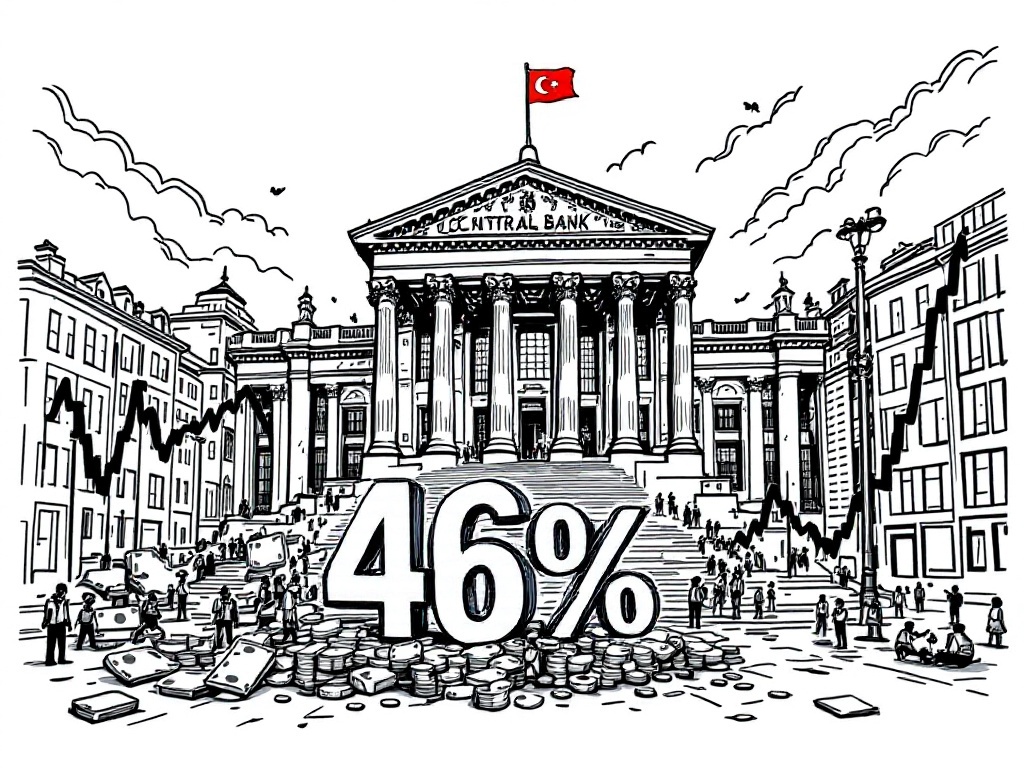Turkey's Central Bank Stuns with Significant Rate Hike to 46%

Ankara, Friday, 18 April 2025.
Turkey increased its policy rate from 42.5% to 46% to stabilize the currency and regain investor trust amid protests and economic tensions. Analysts view it as a proactive move.
A Bold Move in Turbulent Times
The decision by Turkey’s central bank to raise its policy interest rate from 42.5% to 46% caught many analysts off guard. This strategic maneuver comes in response to political unrest and economic uncertainties, exacerbated by protests sparked by the arrest of Istanbul’s Mayor Ekrem Imamoglu in March [1]. The protests, coupled with economic disruptions from U.S. tariffs, led to a significant sell-off of the Turkish lira, pressuring the central bank to intervene and stabilize the currency [2][3].
Implications for Inflation and Economic Stability
With inflation currently at 38.1% as of March 2025, the central bank’s action signals a decisive shift back towards a tight monetary policy. The move is intended to realign inflation expectations and strengthen the lira amidst tense economic conditions [1][4]. Economic analysts, including those from Capital Economics, have noted the potential for this policy shift to address upside risks to inflation, hinting at the committee’s growing concern over prolonged inflationary pressures [3][5].
Market Reactions and Economic Forecasts
While the decision garnered mixed reactions, the Turkish lira experienced a modest rebound to 38.10 to the dollar following the announcement. Despite previous investor concerns of extended easing cycles, this rate hike demonstrates the central bank’s commitment to combating inflation and stabilizing the market [6][7]. Economists have been quick to adjust their forecasts, with some predicting a further drop in the one-week repo rate to 40% by the end of the year [1][5].
Looking Ahead: Monetary Policy Paths
As the central bank navigates these tumultuous waters, its future policy trajectory remains critical. It has pledged to maintain a tight monetary stance until a sustained decline in inflation is observed. Analysts suggest that, despite this rate hike, further adjustments in the central bank’s policy rate will be contingent on inflation trends and external economic pressures, such as capital flows and geopolitical tensions [3][8][9].
Sources
- www.cnbc.com
- www.bloomberg.com
- www.al-monitor.com
- www.france24.com
- www.turkishminute.com
- www.bloomberght.com
- bigpara.hurriyet.com.tr
- www.bbc.com